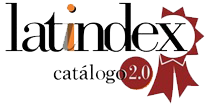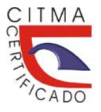Social processes of youth boredom: Rational Emotive Behavior Therapy and Recreational Mathematics as solutions
DOI:
https://doi.org/10.5281/zenodo.15102384Palavras-chave:
boredom, games, math, recreation, therapyResumo
Introduction: contemporary dynamic society offers fun socialization features within an optimized youth model. However, the field of Mathematics establishes undeniable parallels between the cognitive aspect of the young and fatigue. Objective: to outline actions in favor of recreation and promotion of critical thinking skills. Method: as a foundation for Rational Emotive Behavioral Therapy it was possible to delimit emotional guidelines for the benefit of the psychological environment of a young person. Results: having discovered the great principle of boredom and applying emotional techniques, means dedicated to recreation were obtained. Such that, thus, mathematical techniques were noticed as a product of gaming; diverting boredom. At the same time, Recreational Mathematics was determined as a motor activity and Information and Communication Technologies as cognitive tools to provide a feasible solution. Conclusion: it was conceivable to minimize the occurrence of desertion by managing numerical complements as playful management; case of psychomotor, multicultural and heuristics.
Downloads
Referências
Albert, SL, Massar, RE, Kwok, L., Correa, L., Polito Moller, K., Joshi, S., Shah, S., and McMacken, M. (2022). Pilot Plant-Based Lifestyle Medicine Program in an Urban Public Healthcare System: Evaluating Demand and Implementation. American Journal of Lifestyle Medicine. https://doi.org/10.1177/15598276221113507
Beaupoil Hourdel, P. (2020). Telling stories multimodally: what observations of parent-child shared book-reading activities can bring to L2 kindergarten teachers' training. In Language learning and professionalization in higher education: pathways to preparing learners and teachers in/for the 21st century. https://doi.org/10.14705/rpnet.2020.44.1105
Bopp, C., Salzmann, A., Volz-Willems, S., Jäger, J., and Dupont, F. (2022). The Role of Providing Structure in a Family Medicine Curriculum for Undergraduate Medical Education. Zeitschrift Fur Allgemeinmedizin, 98 (11). https://doi.org/10.53180/zfa.2022.0396-0401
Burston, A., Miles, S.J., and Fulbrook, P. (2023). Patient and caregiver experience of living with a pressure injury: A meta-synthesis of qualitative studies. In Journal of Clinical Nursing, 32(13-14). https://doi.org/10.1111/jocn.16431
Chang, D.H., Lin, M.P.C., Hajian, S., and Wang, Q.Q. (2023). Educational Design Principles of Using AI Chatbot That Supports Self-Regulated Learning in Education: Goal Setting, Feedback, and Personalization. Sustainability (Switzerland), 15(17). https://doi.org/10.3390/su151712921
Cimino, S. (2023). Some notes on the phenomenology of psychological disorders: from the birth of Freudian psychoanalysis to the possible contribution of multiple etiopathogenic factors. Scandinavian Psychoanalytic Review, 46(1-2). https://doi.org/10.1080/01062301.2023.2281132
Friedman, Z.L., Hubbard, K., and Seruya, F. (2023). Building Better Teams: Impact of Education and Coaching Intervention on Interprofessional Collaboration Between Teachers and Occupational Therapists in Schools. Journal of Occupational Therapy, Schools, and Early Intervention, 16(2). https://doi.org/10.1080/19411243.2022.2037492
Hill, A., and Peuker, S. (2024). Expanding students' social networks via optimized team assignments. Annals of Operations Research, 332(1-3). https://doi.org/10.1007/s10479-023-05492-2
Hou, H.T., Fang, Y.S., and Tang, J.T. (2023). Designing an alternate reality board game with augmented reality and multi-dimensional scaffolding for promoting spatial and logical ability. Interactive Learning Environments, 31(7). https://doi.org/10.1080/10494820.2021.1961810
Konstantinov, N.N., and Semenov, A.L. (2021). Productive education in the mathematical school. Chebyshevskii Sbornik, 22(1). https://doi.org/10.22405/2226-8383-2021-22-1-413-446
Kuswanto, AV, Wibowo, DV, and Setiawati, FA (2023). The Synergy of the Three Pillars of Education in Early Childhood Character Education. Al- Athfaal : Jurnal Ilmiah Pendidikan Anak Usia Dini, 6(1). https://doi.org/10.24042/ajipaud.v6i1.16068
Mardiani, A., Ismail, H. Bin, and Ahmad, I.S. (2023). The Challenges in Inculcating Islamic values in the National Educational System in the Era of Globalization: A Case-Study at a Private Secondary School. IJECA (International Journal of Education and Curriculum Application), 6(2). https://doi.org/10.31764/ijeca.v6i2.14020
Mehmood, A., Marsden, T., Taherzadeh, A., Axinte, L.F., and Rebelo, C. (2020). Transformative roles of people and places: learning, experiencing, and regenerative action through social innovation. Sustainability Science, 15(2). https://doi.org/10.1007/s11625-019-00740-6
Perrotta, C., Gulson, K.N., Williamson, B., and Witzenberger, K. (2021). Automation, APIs and the distributed labor of platform pedagogies in Google Classroom. Critical Studies in Education, 62(1). https://doi.org/10.1080/17508487.2020.1855597
Wampold, B.E., and Flückiger, C. (2023). The alliance in mental health care: conceptualization, evidence and clinical applications. World Psychiatry, 22(1). https://doi.org/10.1002/wps.21035
Wilson, CD, Haudek, KC, Osborne, JF, Buck Bracey, ZE, Cheuk, T., Donovan, B.M., Stuhlsatz, M.A.M., Santiago, M.M., and Zhai, X. (2024). Using automated analysis to assess middle school students' competence with scientific argumentation. Journal of Research in Science Teaching, 61(1). https://doi.org/10.1002/tea.21864
Yusri, R.D., Fauzan, A., and Yarman. (2023). Analysis of Students' Mathematics Learning Difficulties During Online Learning Using Zoom Meeting (Case Study on Students Who Has Low Interest in Learning Mathematics). AIP Conference Proceedings, 2805(1). https://doi.org/10.1063/5.0150110
Zhang, J.Y., Liu, Y.J., Shu, T., Xiang, M., and Feng, Z.C. (2022). Factors associated with medical students' self-regulated learning and its relationship with clinical performance: a cross-sectional study. BMC Medical Education, 22(1). https://doi.org/10.1186/s12909-022-03186-0
Downloads
Publicado
Como Citar
Edição
Seção
Licença
Copyright (c) 2025 Universidad & ciencia

Este trabalho está licenciado sob uma licença Creative Commons Attribution-NonCommercial-ShareAlike 4.0 International License.





















